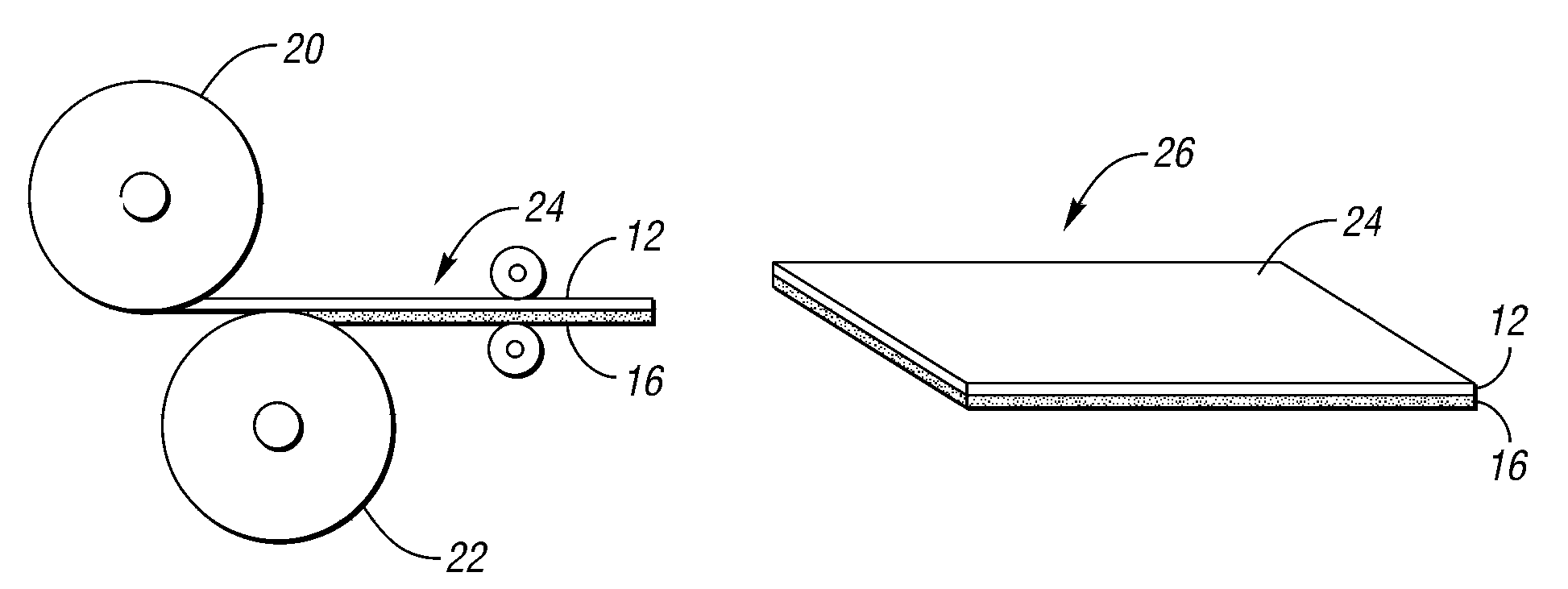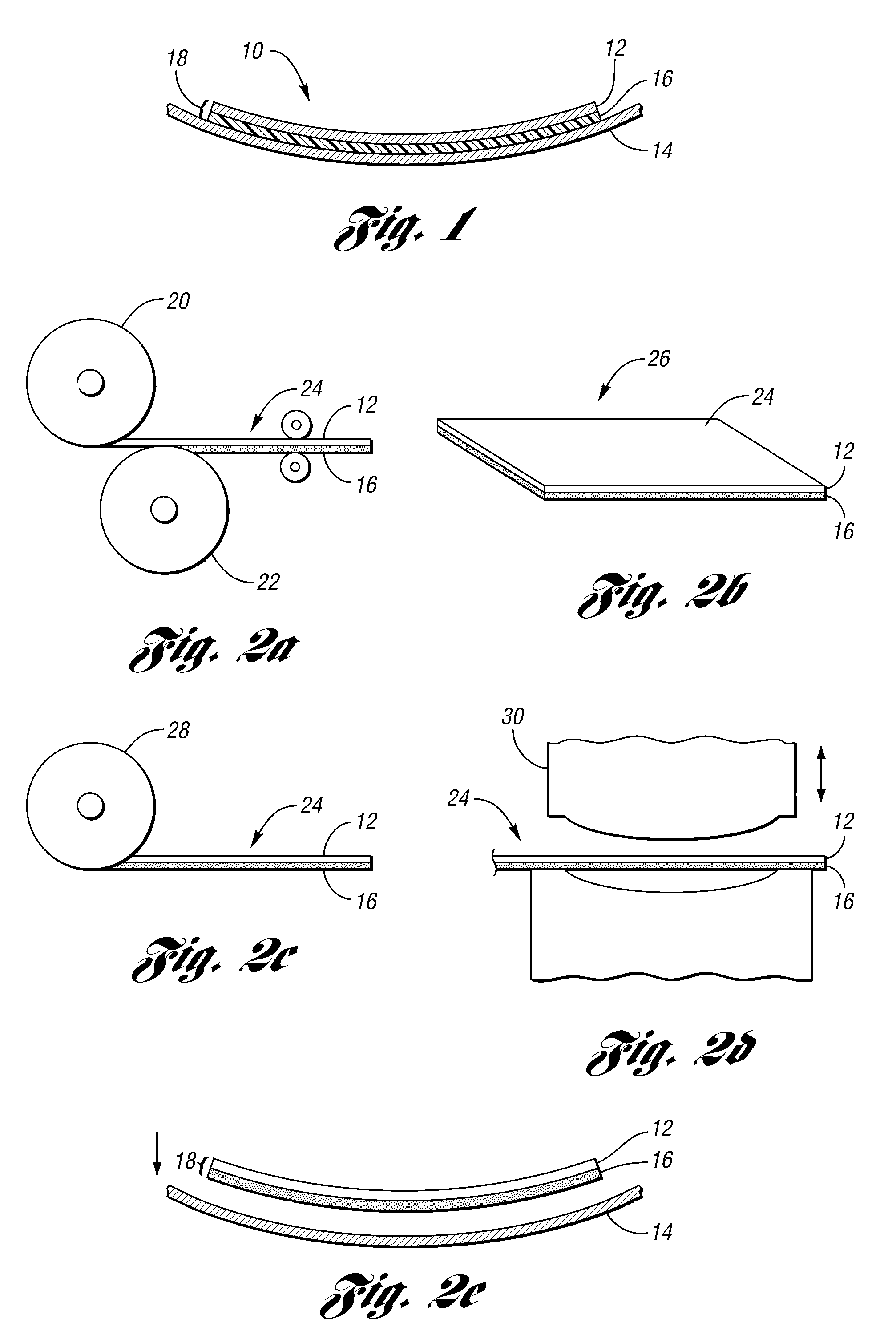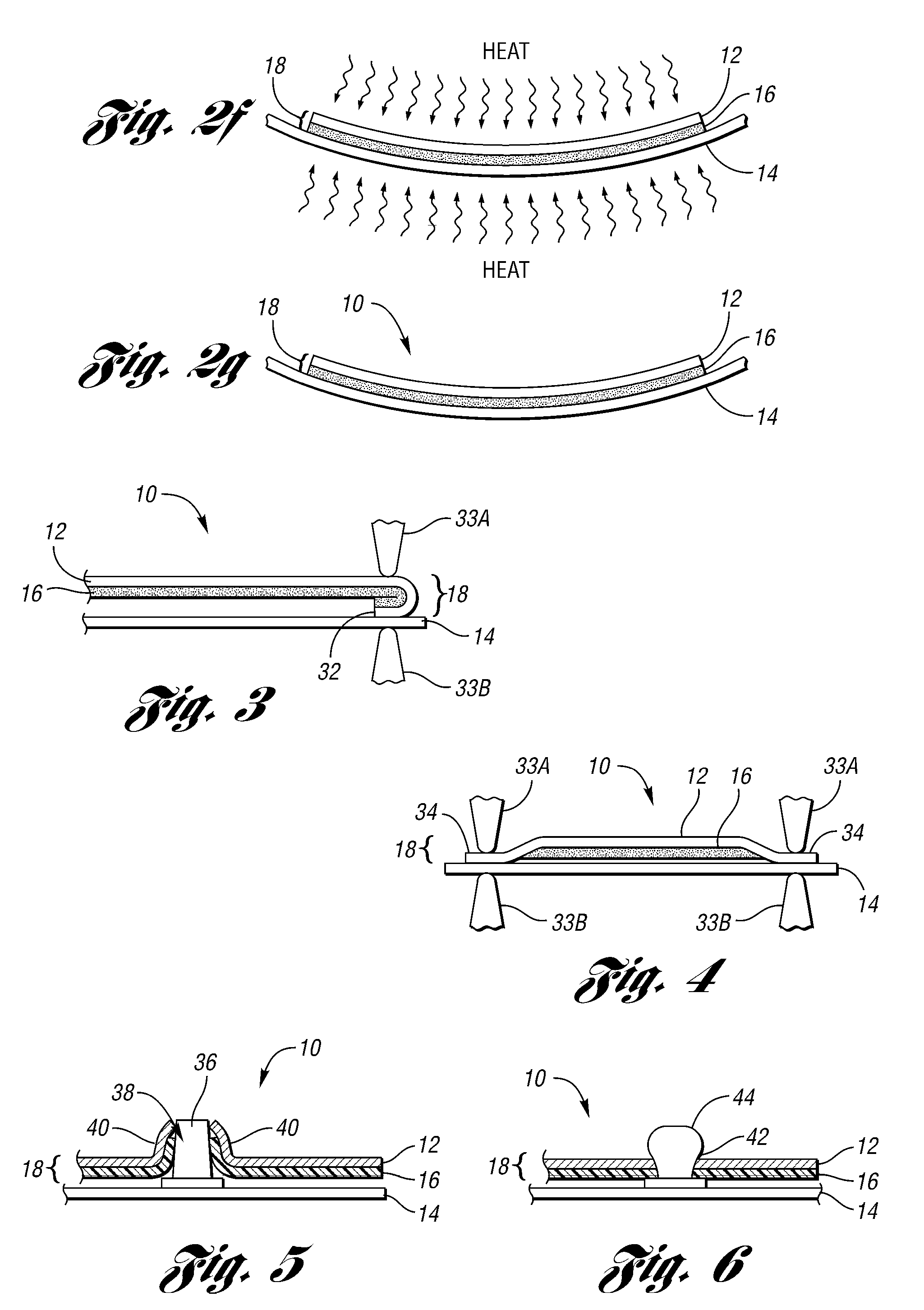Method of forming a panel constrained layer damper treatment
a damper treatment and constrained technology, applied in the direction of synthetic resin layered products, flooring, building components, etc., can solve the problems of painting quality, labor required for installation, non-recyclability,
- Summary
- Abstract
- Description
- Claims
- Application Information
AI Technical Summary
Benefits of technology
Problems solved by technology
Method used
Image
Examples
Embodiment Construction
[0023]Referring to the drawings wherein like reference numbers correspond to like or similar components throughout the several figures, there is shown in FIG. 1 a panel constrained layer damper treatment 10 of the present invention, formed by a method consistent with the present invention. The panel constrained layer damper treatment 10 includes a constraining layer or panel 12 and a substrate 14, respectively, having an engineered visco-elastic layer 16 therebetween and spanning substantially the entirety of the panel 12 and the substrate 14.
[0024]The visco-elastic layer 16 may be formed from any suitable visco-elastic material, which serves a noise and vibration damping function. Those skilled in the art will recognize that the visco-elastic layer 16 may also serve an adhesive attachment function between the panel 12 and the substrate 14. Alternately, those skilled in the art will recognize that the visco-elastic layer 16 may be bonded to the panel 12 and substrate 14 using adhesi...
PUM
| Property | Measurement | Unit |
|---|---|---|
| thickness | aaaaa | aaaaa |
| thickness | aaaaa | aaaaa |
| thickness | aaaaa | aaaaa |
Abstract
Description
Claims
Application Information
 Login to View More
Login to View More - R&D
- Intellectual Property
- Life Sciences
- Materials
- Tech Scout
- Unparalleled Data Quality
- Higher Quality Content
- 60% Fewer Hallucinations
Browse by: Latest US Patents, China's latest patents, Technical Efficacy Thesaurus, Application Domain, Technology Topic, Popular Technical Reports.
© 2025 PatSnap. All rights reserved.Legal|Privacy policy|Modern Slavery Act Transparency Statement|Sitemap|About US| Contact US: help@patsnap.com



